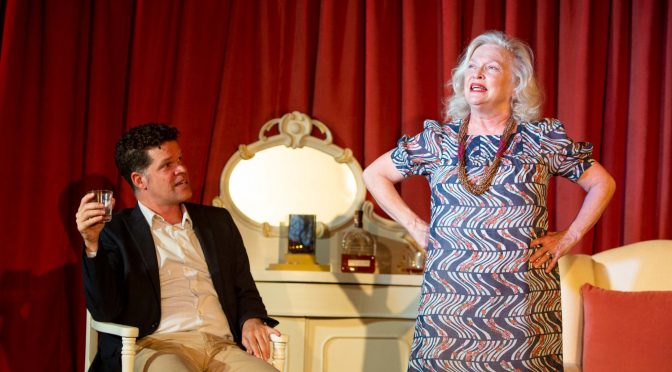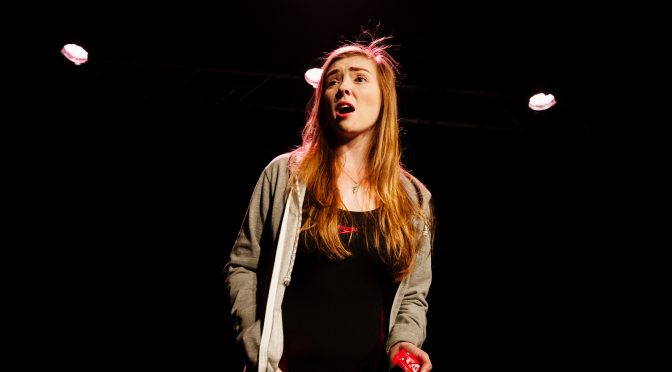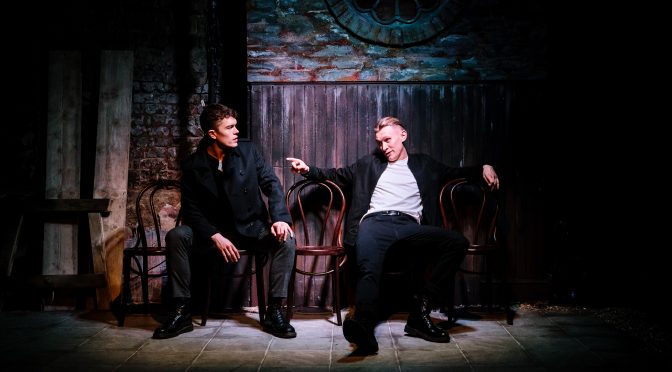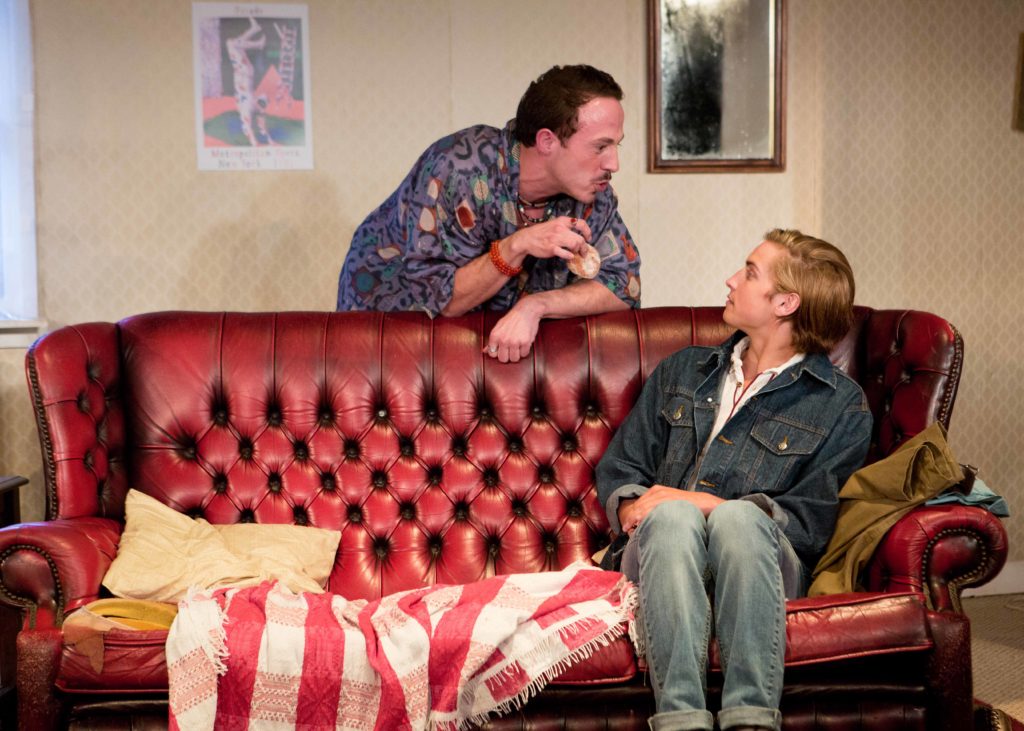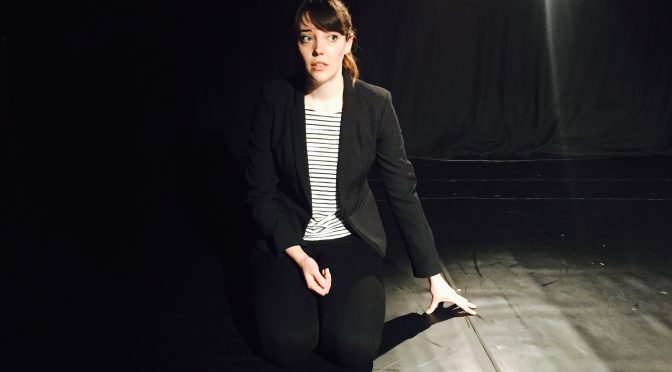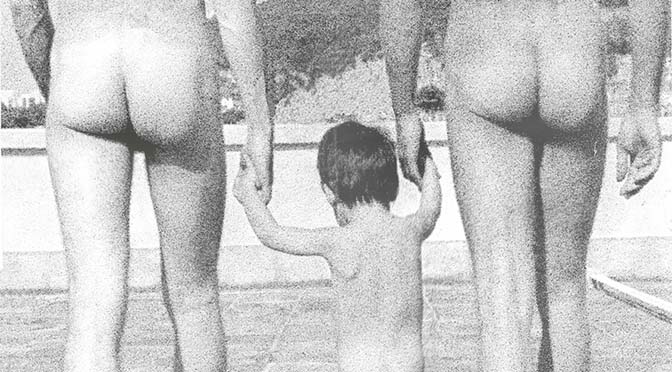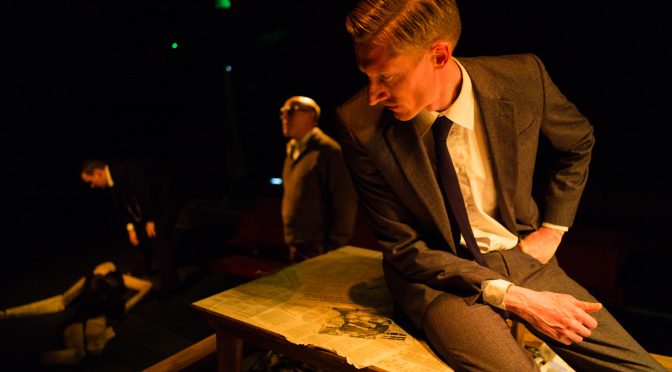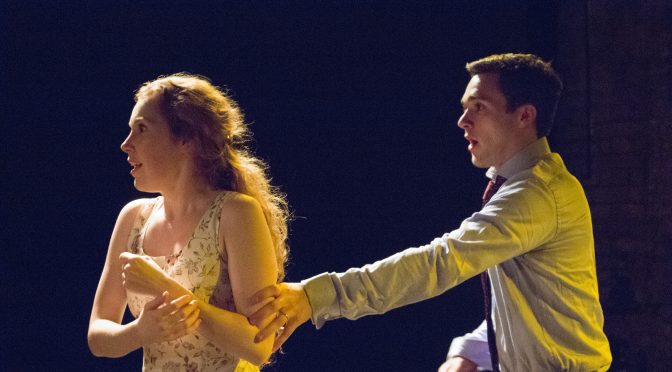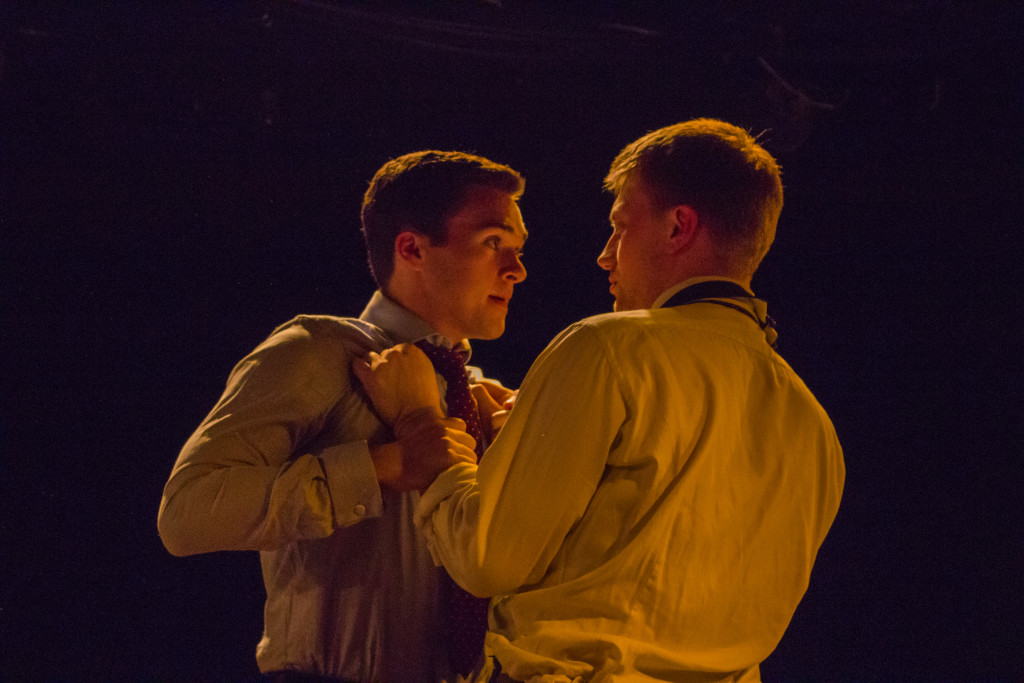This is a disappointing play from the talented American writer Keith Bunin, who so impressed last year with The Busy World Is Hushed at the Finborough Theatre. The Unbuilt Cityis a two-hander featuring an academic trying to acquire the archive of an aged philanthropist. The plot is too low-stakes to engage, the characters too predictable to excite and, although the play has plenty of ideas, none is sufficiently explored.
The scenario has echoes of Henry James’ The Aspen Papers. And, like James’ novella, this is a cerebral affair. The archives treasure consists of a plan for a utopian New York. The poetic potential of such idealism is interesting, and the excitement about the famous ‘paper architect’ of the plan is conveyed effectively. Along the way, we ruminate on inequality, history and memory, with some lyrical moments and a strong sense of what it’s like to love a city. But the play gets bogged down in its fireside wisdom, displaying a sentimental streak that’s lazy and results in platitudes.
Many faults could be excused if the characters convinced. While I found the dialogue credible for such an erudite couple, their rapport is minimal and poorly developed. Jonathan Chambers plays struggling writer Jonah with his heart on his sleeve, robbing us of what little tension is written for the role. Sandra Dickinson has a more interesting part as the heiress Claudia and there are moments when she is moving. She seems severely hampered by her costume, which could be easily remedied. More seriously, the character is again played as too likeable, so her reminiscing seems sweet and something to indulge rather than consider seriously.
It’s hard to believe Claudia wants, let alone needs, to be “three or four steps ahead” of Jonah in negotiations over her estate. Bunin calls a ceasefire before a battle of wills even begins. Director Glen Walford aims to remedy the play’s static quality, understandably, but her efforts fail. The delivery is rushed in an effort to generate energy and the cast roams about the cramped stage inexplicably. It all makes for an uncomfortable production of a floundering script.
Until 30 June 2018
Photo by PND Photography

